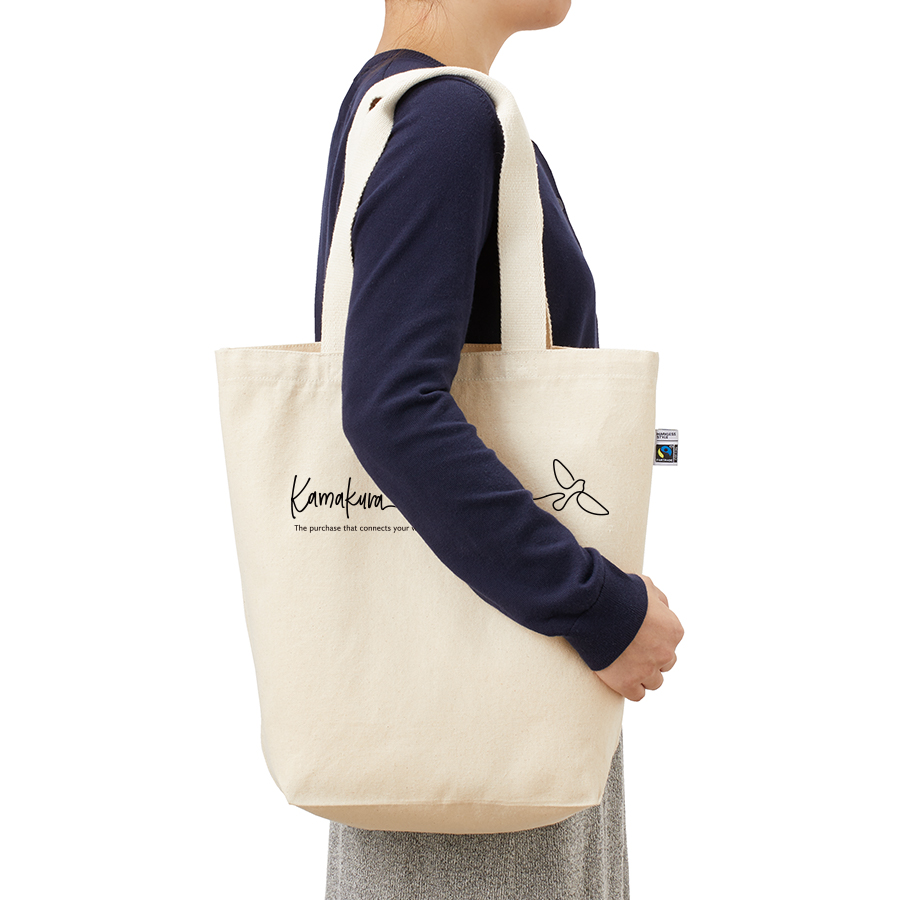Kamakura Ethical Lab: Original Fair Trade Tote Bag Launch
- Nov 16, 2025
- 3 min read
The bag that takes a step toward changing the world.
Kamakura Ethical Lab Launches Limited Edition Fair Trade Cotton Tote Bag on November 30th!

A Special Bag Connecting Your Well-being to the World's
Kamakura Ethical Lab is proud to launch an original tote bag that embodies our core mission: "Making Ethical Choices."
The moment you hold this bag, you are directly participating in improving the lives of producers in developing countries and contributing to a sustainable society.
Product Information
Product Name | Kamakura Ethical Lab Original Fair Trade Cotton Tote Bag |
Concept | "Sending Compassion from Kamakura to the World" |
Catchphrase | "The purchase that connects your well-being to the world's." |
Limited Edition | 30 bags worldwide |
Price | ¥3,000 (Tax Included) |
Debut | Sunday, November 30th at Harris Kindergarten Christmas Market, Kamakura |
Why Fair Trade Cotton?

We chose Fair Trade cotton for this bag to squarely address the overlooked voices of producers and the severe issues within the conventional cotton industry.
1. The Harsh Reality of the Cotton Industry
For many years, conventional cotton farming has been plagued by the following severe problems:
Human Rights Issues: Unjust Labor and Poverty
In developing countries, particularly India, Uzbekistan, and Pakistan, raw materials are often purchased at unfairly low prices, leaving many producers economically distressed. Their income frequently falls below the minimum needed for survival, forcing children into labor instead of school.
Health Hazards and Dangerous Working Conditions
Excessive pesticide use is the norm. Workers handling these chemicals without proper protective gear are exposed to serious health issues, including skin diseases, respiratory illnesses, and neurological disorders. Women and children are often subjected to the most dangerous environments.
Environmental Degradation: Pesticide Pollution and Water Scarcity
Conventional cotton farming is estimated to account for about 16% of the world's total insecticide use, severely polluting soil and groundwater. Furthermore, the massive amount of water required has caused large-scale environmental disasters, such as the shrinking of the Aral Sea and the depletion of the Indus River, affecting the lives of millions.
2. The Future that Fair Trade Creates
Fair Trade is a trading system designed to improve the living conditions and self-reliance of disadvantaged producers and workers by continuously purchasing raw materials and products from developing countries at a fair price.
Choosing Fair Trade certified cotton directly leads to the realization of the following:
Improved Livelihoods and Economic Independence
Receiving a fair price allows producers to build stable livelihoods and provide their children with access to education and healthcare.
Better Working Conditions and Human Rights Protection
Fair Trade certification requires producers to adhere to strict labor standards, including the prohibition of child labor, ensuring safe working conditions, and limiting working hours.
Environmental Protection and Sustainability
Much of Fair Trade cotton is also organic, contributing to the reduction of chemical pesticides, the protection of soil and water resources, and the preservation of biodiversity.

Making "Ethical Consumption" an Everyday Habit
Carrying this bag is an ethical statement: a choice for a prosperity where everyone involved is paid a fair price, rather than a "cheapness built on someone else's sacrifice."
The catchphrase, "The purchase that connects your well-being to the world's," encapsulates our hope that "ethical consumption" be viewed not as a special event, but as an everyday action.
While awareness of ethical consumption is still growing in Japan, your actions have the power to change the world.
Because this is a bag you use every day, your choice will constantly ask the questions:
"By whom, and under what conditions, was this product made?"
"What impact does my consumption have on someone's life in the world?"
Through this tote bag, you transform from a mere consumer into a chooser who shapes the future of the world.
Not only will this tote bag contribute to Kamakura Ethical Lab's activities, but it will also quietly yet powerfully broadcast that you are a consumer creating positive global impact.
On November 30th, come and get this special bag at the Harris Kindergarten Christmas Market, and incorporate "ethical well-being" into your daily life!
This is a special bag, limited to 30 worldwide.
Please be sure to visit us early.





Comments